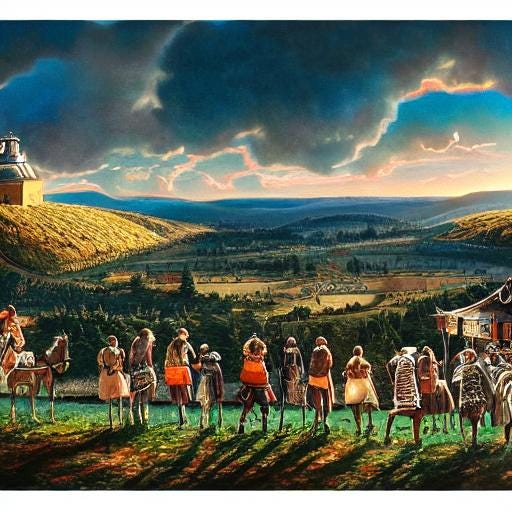Who is Joel Rosenman?
Rosenman is an American businessman and entrepreneur who co-founded Woodstock Ventures, the company that organized the famous Woodstock Music & Art Fair in 1969.
Rosenman is an important witness about the experience at Woodstock and for my upcoming projects related to Chip Monck and the Woodstock setup.
The least important professional task of pioneering lighting director Monck but the one he is best known for is as the voice of Woodstock, specifically his comments about “the brown acid.”
Here is the title of my book proposal about Monck; Rosenman will be a terrific source for:
Lighting Up: The Grandfather of Rock ‘N’ Roll Productions by Chip Monck as told to G. Mick Smith, PhD.
The quartet of Jewish men who created the original Woodstock Music & Arts Fair: An Aquarian Exposition, in White Lake, a hamlet of Bethel, N.Y., were promoter Michael Lang, who to this day remains the face of the festival, former record company executive Artie Kornfeld, and Joel Rosenman and John P. Roberts, two young financiers who at the time were scouting about for investment opportunities.
Woodstock was a three-day music festival held on August 15-17, 1969, on a dairy farm in Bethel, New York. The festival featured some of the most iconic musicians of the time, including Jimi Hendrix, Janis Joplin, The Who, and The Grateful Dead, among many others. The event was a cultural phenomenon, attracting over 400,000 attendees and becoming a symbol of the counterculture movement of the 1960s.
Rosenman's role in organizing Woodstock was instrumental, as he was responsible for securing the venue, managing the logistics, and overseeing the financial aspects of the festival. Woodstock remains one of the most iconic and influential music festivals in history.
After Woodstock, Rosenman went on to pursue other business ventures, including founding a record label and a music publishing company.
Woodstock Records: A record label that released music from various artists, including some of the performers at the Woodstock festival.
Woodstock Music Publishing: A music publishing company that handled the publishing rights for many of the songs performed at Woodstock.
Rosenman also founded:
Woodstock Film Productions: A film production company that produced several documentaries and films, including "Woodstock" (1970), a documentary film about the festival, and "The Last Waltz" (1978), a documentary film about the farewell concert of The Band.
Perhaps the greatest rock documentary ever made, Martin Scorsese’s The Last Waltz captures what was advertised as legendary rock group The Band’s final farewell concert appearance. Joined on stage by more than a dozen special guests, including Eric Clapton, Bob Dylan, Neil Young, Muddy Waters and Joni Mitchell, The Last Waltz started as a concert, but it became a celebration. Interspersed with candid discussions between director Scorsese and members of The Band, The Last Waltz has been called “the greatest rock concert movie ever made - and maybe the best rock movie, period.” And remember, “This film should be played loud!”
Rosenman also founded Woodstock Management: A management company that represented various artists, including some of the performers at the Woodstock festival, such as Jimi Hendrix, Janis Joplin, and The Who.
These companies were part of Rosenman's efforts to capitalize on the success of Woodstock and to continue to promote and support the music and arts community.
Rosenman and Roberts are the co-authors of Making Woodstock, originally published as Young Men with Unlimited Capital, a non-fiction account of their exploits as producers of Woodstock.
The Amazon blurb about the volume states:
“Hilarious, behind-the-scenes anecdotes from the production of the legendary 1969 Woodstock Music Festival. In January of 1969, the authors were approached by Artie Kornfeld and Mike Lang with a plan to build a tiny recording studio in Woodstock NY. Roberts and Rosenman made a counter-proposal: produce a rock concert instead. "Making Woodstock" chronicles the next eight months as the novice producers of Woodstock lurch through catastrophes and miracles on the way to the weekend that named the Woodstock Generation. Throughout the book Roberts and Rosenman, lifelong friends and partners, don't miss an opportunity to laugh at their predicaments. Although the book is laced with irreverence, the authors are fundamentally respectful of what they built. Their eight-month journey from money to mud leaves them with a new appreciation for the counterculture and a book full of madcap adventures.”




